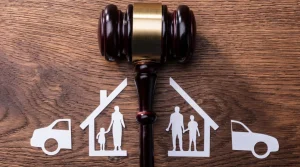The Difficulties of Coparenting Adolescent Children
More than 30% of children in the United States do not reside with both parents and instead have some co-parenting arrangement. The divorce between parents may significantly influence children’s growth, mental health, education, and other key concerns. Family attorneys also warn that children’s challenges vary by age and that teenage adolescents may be the most difficult to co-parent since they are already breaking away.
What Exactly Is Co-Parenting?
Most families with divorced parents must co-parent. There are three main forms of co-parenting:
- concurrent parenting
- Uneasy co-parenting
- co-parenting in good faith
According to divorce attorneys, parallel parenting has been the standard strategy utilized in around 50% of all divorces involving children, but things are starting to change. In many circumstances, one parent has visiting rights but only temporary physical custody of the children and is primarily responsible for their care. An advantage of a parallel method is that there is little to no communication or disagreement, but a disadvantage is that the children may experience inconsistent parenting.
About 25% of divorces result in conflicted parenting. However, this number is declining, most likely due to increased knowledge about the harm divorce does to children. According to divorce lawyers and mental health specialists, this kind of co-parenting is the most detrimental for kids.
Cooperative co-parenting happens in around 25% of divorces. However, this figure is increasing for the reasons indicated above. Cooperative co-parenting is viable and beneficial even when one parent has custody, and the other gets visitation. It is only important that both parents be on the same page. However, a greater focus on child protection has given birth to alternate shared custody arrangements, such as birdnesting, in which the divorced spouse keeps the family home and takes turns caring for the children.
The Additional Difficulty of Divorcing as a Parent
Children may complicate their parents’ divorce. Ex-spouses get to go ahead and focus on restoring their individuality in a divorce involving childless couples or those who have children who have already moved out to live their own lives. There is no clean separation when co-parenting since the ex-spouses maintain a continuous parental connection that will last for years. Recognizing the problems you and your ex-spouse will confront is important to develop a co-parenting agreement that works for your family.
Children may make their parents’ divorce more difficult. In a divorce involving childless couples or those who have already gone out to live their own lives, ex-spouses may concentrate on reclaiming their independence. There is no clean separation when co-parenting since the ex-spouses retain a continuous parental tie that will persist for years. Recognize the issues you and your ex-spouse will face creating a co-parenting agreement that works for your family.
Another challenge that co-parents confront is that disagreements between you and their ex-spouse will become more evident with the additional independence that comes with divorce. You will have to learn new ways to communicate.
Divorce Affects Adolescents Differently
Regarding their parents’ divorce, all children, regardless of age, may experience sadness and other emotions, but it’s important to recognize that how these feelings emerge may change depending on age. Children up to eight are still firmly close to their parents and will likely tighten that relationship to prevent future family loss. The teenager (usually between 9 and 13) is increasingly self-reliant. They are already disconnecting from their parents and are likely to do so much more for a variety of reasons.
Disillusionment of Adolescence
One of these factors is the disillusionment that develops among divorced teenage children. Divorce is often seen as a broken promise by adolescents. Marriages may fail. The family might be split apart. Love isn’t eternal, and parents might choose their pleasure above that of their children. Family law lawyers caution that the stronger the emotional response, the more autonomous the kid. It is a form of emancipation in which parental leadership fails, and the kid grows increasingly dependent on themselves–and hostile to their parents’ restrictions.
Divorce Accelerates Adolescence
Family attorneys urge parents to watch for fast maturity, which may occur in youngsters in their early twenties. Early teenagers sometimes struggle against the idea that they are still young. Mid-adolescents often forgo time with their parents to spend more time with their friends. Accelerated risk-taking behavior is frequent in late adolescence, and during the trial independence period, children of divorce are likely to go out on their own too soon.
The Co-Parenting Plan With an Adolescent
Adolescent shared custody is more complex than conventional parenting at that age. Divorce lawyers advise separated parents to sign a co-parenting agreement. The importance of such an agreement is that it exists and causes you to explore the alternatives and discuss how you will react. It may also help each ex-spouse achieve a successful parenting connection. Each individual expects the other to be dependable, responsible, adaptable, and so on.
Benefit From Co-Parenting Counseling
Parenting therapists are more than simply specialists in parental relationships. They have extensive expertise with the behaviors that your teenage kid may show. As a parent of a teenage kid, you may feel at a loss at times, and your counselor may not only give you skills and resources but also do so in the context of working together as a team.
Parenting Strategies for an Adolescent
Many of the tactics that experts advocate when working as a team are the same as in a conventional parenting arrangement, and you should be aware that your healthy teamwork will benefit your kid. Experts in parenting advise setting clear and strict limits for schoolwork, curfew, friends, phone use, and other related issues. Discipline must also be plain and consistent, and parents must present a unified front. Encouragement and connecting are also important, and if you notice a situation possibly getting out of control, don’t be afraid to seek expert help.
Legal Assistance for Co-parenting After Divorce
If you are going through a divorce and want to co-parent, a family law attorney with expertise in this delicate area might be a tremendous resource. Paducah Divorce Lawyers is a Paducah legal company that has handled many of these sorts of disputes. We can answer your questions, discuss alternatives, and help you prepare for the difficulties ahead. You may book an introductory appointment at our website or contact us today at (270) 201-7776.






